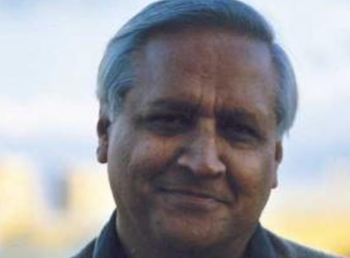Bunker Roy

Sanjit "Bunker" Roy was prepared in every possible way-family background, personal charisma, education-for a successful career in India's civil or diplomatic service, but about the time he graduated, there was a famine in Bihar. Roy went, he now says, "out of curiosity, to see another part of India." So affected was he by what he found there, he has dedicated his life to serving the rural poor. At first, his family disowned him.
This was 1967. Roy spent the first five years blasting wells in the Ajmar District of Rajasthan. This was difficult, dangerous work, but it wasn't the work that changed him; it was the people he met. He said, "I lived with very poor and ordinary people under the stars and heard the simple stories they had to tell of their skills and knowledge, of the wisdom that books and lectures and university education can never teach you." Roy understood that his blue chip education was of paltry value compared with the wealth of knowledge held by these people who were considered by many to be uneducated and worthless.
"My real education started then," he said, "when I saw water diviners, traditional bonesetters and mid-wives at work. There is a difference between literacy and education. Literacy is reading and writing and what you pick up in school. Education is what you receive from your family, your community, and your environment."
In 1972, Roy established the Barefoot College to give impoverished people from rural communities an opportunity to share with each other practical and valuable skills. The college is in Tilonia, a Rajasthan village, about 95 kilometers from the state capital, Jaipur, and yet its reach has become international.
As one example of the many projects happening through the Barefoot College, between 2005 and 2011, 140 women, most of them grandmothers, have traveled to Tilonia from villages in Africa to receive training as solar engineers. The African women do not know how to read or write, and none of them speak any Indian language, and so their six-month training course is taught through sign language and color codes. Still, by the end of it, they return to their villages qualified to install, maintain, and operate household, solar-powered lighting systems. They have learned to install integrated circuit boards for solar home lights and off-grid solar units generating up to 500 kilowatts a day. These women are, in short, able to electrify their villages.
In the five years the Barefoot College has offered solar training for students from Africa, these 140 women have brought solar electrical power to almost 10,000 rural homes in 21 African countries.
To date, the Barefoot College has trained more than 3 million people for jobs in the modern world. Besides solar engineers, the Barefoot College has prepared teachers, midwives, water-drillers, phone operators, blacksmiths, carpenters, masons, weavers, architects, dentists, doctors-and it's all happened in buildings so rudimentary they have dirt floors and no chairs. Indigenous students feel comfortable in such modest circumstances; most of their teachers are from the same background and are graduates of the same school.
Bunker Roy has found an effective way of fighting poverty: helping the poor steer their own path, fostering dignity and self-determination at every step along the way.
You can keep up with the Barefoot College at his website below.
-Profile by Margaret Bendet
